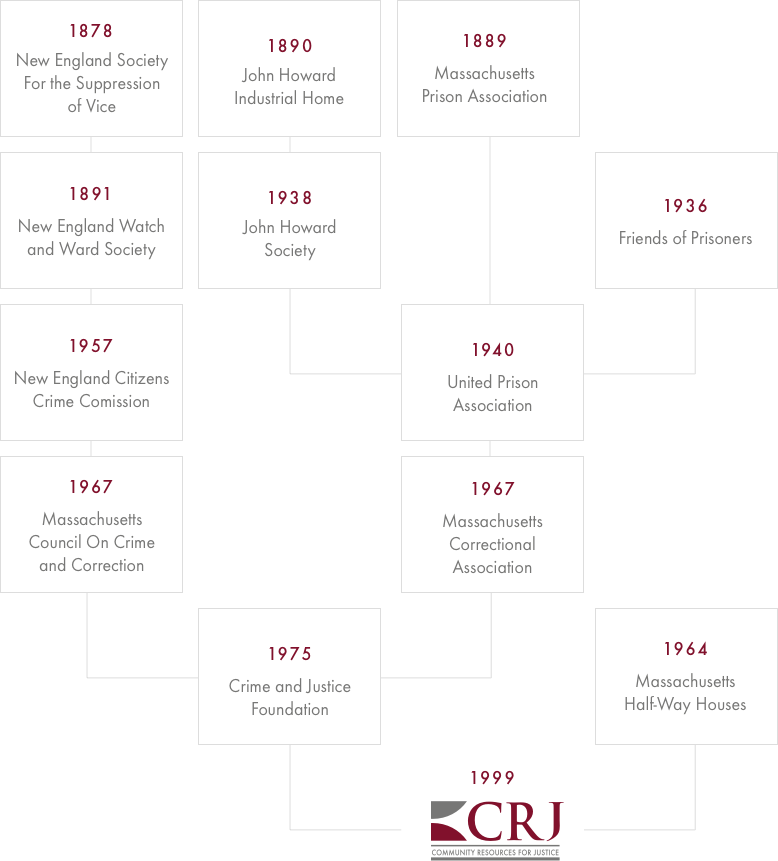Community Resources for Justice’s long history and combination of direct services and policy work are part of what makes us unique.
CRJ as it exists today is the result of several mergers of organizations rooted in different aspects of social activism. One branch focused on preventing crime, while another undertook providing direct aid to incarcerated men and women and to newly released former prisoners and later to adults with developmental disabilities.
CRJ traces its origins back to the New England Society for the Suppression of Vice, founded in 1878. Part of a Victorian-era backlash against what its members viewed as threats to society’s moral fiber, the organization campaigned against gambling and other perceived vices. The organization’s name and mission evolved over time as it shifted to focus more broadly on crime prevention and working with law enforcement. It became the Massachusetts Council on Crime and Correction in 1967.
In 1975, the organization became the Crime and Justice Foundation through a merger with the Massachusetts Correctional Association, which began as several different groups dating back to 1889 that focused on providing housing and support to recently released prisoners. The foundation delved into policy research and reform, working with government agencies and prisons.
Further broadening its scope, the foundation in 1999 merged with Massachusetts Half-Way Houses, which provided residential and non-residential programs for adults with developmental disabilities and men and women leaving incarceration.
Massachusetts Half-Way Houses began the forerunner of CRJ’s Community Strategies and Social Justice Services divisions, including several group homes and residential reentry centers that are still in operation today. The Crime and Justice Foundation’s policy and research work continues today in the Crime and Justice Institute.
In August of 2020, CRJ announced the acquisition of Connecticut’s Family ReEntry. Since 1984, Family ReEntry has worked to break cycles of violence, crime, and incarceration by providing reentry services, domestic violence treatment and education, mentoring programs, and intensive outpatient programs.
